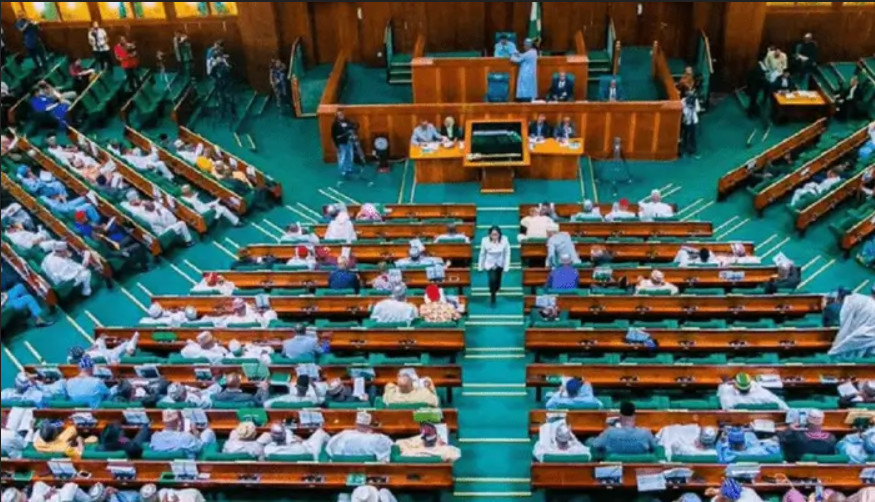Nigeria’s central bank’s balance of payment review in 10 years (2011-2021) has shown that medical tourism has cost the nation a whopping sum of $11.01 billion.
With an average of $1billion yearly spending on tourism according to the Nigerian Sovereign Investment Authority (NSIA), 2019 saw the highest oversees health-related expenditure at $2.56 billion – the same year the country budgeted a meagre $757.920 million (N315.62 billion) for the health sector.
Meanwhile, that year, as much as 86.3% of the budget was earmarked for recurrent expenditure while just 13.7% was for capital expenditure.
Over the years, despite the yearly shortfalls in budgetary allocation to the health sector, an average of 80% goes to payment of salaries, pension and other overheads costs, while critical investments in facilities and other infrastructural upgrades are largely underfunded.
Worried by authorities’ negligence and failure to fix the nation’s health sector in the face of threatening medical emergencies and widespread diseases like the covid-19 outbreak, a lawmaker has sponsored a bill that prescribes a seven-year jail term or N500 million ($936,329) fine for government officials who use public funds for medical trips abroad.
The piece of legislation titled ‘A Bill for an Act to Amend the National Health Act, 2014; and for Related Matters,’ was sponsored by Sergius Ogun, who represents Esan North East/Esan South East (Edo State) in the House of Representatives.
Ogun said that the objective of the proposed law was to amend the Act to make for appropriate sanctions against a public officer who violates Section 46 of the extant law – the National Health Act.
“This bill, which seeks to amend the National Health Act, is borne out of a desire to discourage medical treatment abroad at the detriment of our indigenous health institutions. The need to revamp the poor state of the health care sector in Nigeria, among other things, is the reason for introducing this bill,” the lawmaker said.
“It is no news that Nigeria’s health care system is in a deplorable state and needs urgent attention. There is [a] paucity of infrastructure, [a] dearth of medical personnel, poor standards and many other challenges that need to be addressed. The intent of this bill is to spur public officers to pay more attention to our health care sector and take drastic steps to develop and improve on the sector.”
A further dive into the decay in the nation’s health sector
Over the last 10 years, Nigeria’s health sector has received an average of about 4.72% of the yearly fiscal budget. This is a far cry from the 15% agreed on by African leaders and the World Health Organisation (WHO) in 2001. Despite the outbreak of covid-19, which exposes the deplorable health situation here, and the resultant decline in search for medical help overseas by government officials and citizens alike, the government has not substantially increased allocation to the sector in dire need of funding.
With 3.83%, 4.05%, 4.35% allocated to the sector in the last three years of COVID-19 (2019, 2020 and 2021, respectively), the government has not demonstrated a real commitment to addressing the challenges of the sector.
Worsening brain drain
Consequently, the country’s health infrastructures, workforce development and motivation for health workers are recurrent concerns that have led to widespread brain-draining in the medical profession. For instance, the UK General Medical Council data shows that about 9,189 medical doctors of Nigeria origin are practising in the UK at year-end 2021. This figure does not include Nigerians who trained and are practising as doctors in the country.
This migration of Nigerian doctors to the UK, Europe, the US and elsewhere continues to worsen. In 2021, when countries were battling to curtail the devastating effect and spread of the covid-19 pandemic, the Saudi Arabia health ministry conducted a recruitment exercise in Nigeria. Over 500 medical doctors reportedly participated and were willing to exit the country.
This migration of Nigerian medical experts has left the country with a poor ratio of 4 doctors to 10,000 persons. That is 1:2500, falling below the 1:400 and 600 persons recommended by the WHO. Yet, more medical practitioners are willing to migrate when given the slightest opportunity abroad.
This is just one of the cumulative effects of authorities’ increased neglect of the nation’s health sector. Incessant strike actions by the Nigerian Medical Association, the National Association of Resident Doctors and other health workers have also become the norm in a country with a high rate of insecurity, unemployment, bad roads, and poor insurance cover for healthcare providers.
Poorly Remunerated and Motivated Workforce
A poorly remunerated workforce exacerbates the high tendency to migrate for greener pastures. It is reported that the highest monthly earning of a Nigerian doctor is about USD 1,365, while their counterparts in the UK, United States, and Saudi Arabia earn up to ten times that amount.
For instance, one doctor identified as Kingsley told Punch newspaper last year: “Before I left Nigeria, I was working at a national hospital. I came here (Saudi Arabia) in 2019. I didn’t want to come initially, but when I heard that Saudi was proposing $3,000 to $8,333 (salary), I just knew I had to leave.”
He continued: “Here, I only attend to four to eight patients (a day). Nigerian doctors are valued here; they really love the fact that we are so smart and intelligent. I would have loved to stay back home. The Nigerian government really needs to do better. Nigeria will continue to lose better doctors if the country does not act fast.”
This shows the level of decay in the nation’s health sector, and authorities have not been decisive in revamping the sector. In fact, President Muhammadu Buhari, who promised to end medical tourism while campaigning in 2015, has reportedly spent 200 days on medical tourism to the UK, despite the State House Clinic receiving a budgetary allocation of over N3.5 billion between 2017 and 2021.
Fixing the Decay
Ogun, the lawmaker, has, therefore, intended to save public dollars on medical tourism for government officials, proposing a penalty be included in the national law for violators.
The section of the proposed legislation reads, “Without prejudice to the right of any Nigerian to seek medical check-up, investigation or treatment anywhere within and outside Nigeria, no public officer of the government of the federation or any part thereof shall be sponsored for medical check-up, investigation or treatment abroad at public expense, except in exceptional cases on the recommendation and referral by the medical board and which recommendation and referral shall be duly approved by the minister or commissioner of health of the state as the case may be”.
Ogun hopes that making this a law in the nation will mark the beginning of real government investment in the nation’s health sector and address the disturbing migration of Nigerian trained medical personnel to other countries in search of better opportunities.
The lawmaker urged the executive to support the bill to demonstrate its commitment to the welfare and health of citizens while equally serving to stop illicit capital flight.
“Funds which were hitherto expended on foreign medical trips will be redirected into building an efficient and effective health care system in the country. This will, in turn, positively impact the lives and wellbeing of the people. All of this cash, which flies abroad in the disguise of one medical trip or the other, will be retained here in our country and be used to develop our nation,” the lawmaker added.
Nigeria's central bank review reveals that medical tourism cost the nation $11.01 billion between 2011 and 2021, averaging $1 billion yearly. In 2019, health-related expenditures abroad reached $2.56 billion while the national health budget was a meager $757.920 million.
Despite budget shortfalls, 80% of health funds go to salaries, pensions, and overheads, leaving critical infrastructure underfunded. Consequently, a bill sponsored by Sergius Ogun seeks to penalize government officials who use public funds for overseas medical treatment to spur investment in local healthcare.
Nigeria's health sector has only received an average of 4.72% of the yearly budget over the past decade, far below the 15% target established by African leaders and WHO in 2001. This underfunding led to a healthcare decline, worsened by brain drain, with thousands of Nigerian doctors moving abroad for better opportunities.
Nigerian doctors earn far less than their counterparts abroad, leading to mass migration, despite Nigeria having only 4 doctors per 10,000 people, below the WHO's recommended 1:400 ratio. A notable example includes a Nigerian doctor who moved to Saudi Arabia for higher pay and better working conditions.
Ogun's proposed legislation aims to restrict public-funded medical trips abroad, redirecting those funds to develop the local healthcare system. The bill seeks to improve citizens' health and well-being and prevent capital flight.






